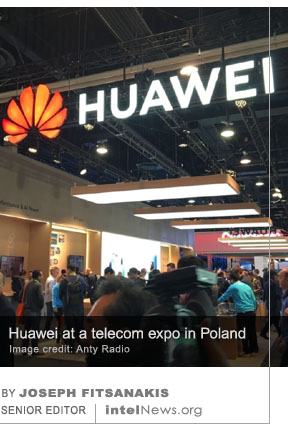Chinese technology firm denies it had access to Dutch government’s phone calls
April 21, 2021 Leave a comment
 A LEADING CHINESE TELECOMMUNICATIONS firm has strongly denied a claim by a newspaper that its service personnel could listen in on calls made by Dutch telephone users, including senior government officials. The report dates from 2010 and was authored by consultancy firm Capgemini on behalf of KPN, one of Holland’s largest telecommunications service providers. The Rotterdam-based firm had hired Capgemini to conduct a risk analysis on whether more equipment should be purchased from Chinese telecommunications giant Huawei. By that time the Chinese company, one of the world’s largest in its field, was already supplying KPN with hardware and software equipment.
A LEADING CHINESE TELECOMMUNICATIONS firm has strongly denied a claim by a newspaper that its service personnel could listen in on calls made by Dutch telephone users, including senior government officials. The report dates from 2010 and was authored by consultancy firm Capgemini on behalf of KPN, one of Holland’s largest telecommunications service providers. The Rotterdam-based firm had hired Capgemini to conduct a risk analysis on whether more equipment should be purchased from Chinese telecommunications giant Huawei. By that time the Chinese company, one of the world’s largest in its field, was already supplying KPN with hardware and software equipment.
According to the newspaper De Volkskrant, which accessed the 2010 Capgemini report, the consultants cautioned KPN against purchasing more equipment from Huawei. They told KPN bosses that the Chinese firm had “unlimited access” to the content of phone conversations by subscribers through Huawei-built hardware and software that was already present in the Dutch company’s telephone system. These included Holland’s then-Prime Minister, Jan Peter Balkenende, and virtually every government minister. The report claimed that privacy standards existed in theory, but there was no mechanism in place to ensure that they were being followed.
On Tuesday, Huawei issued strong denials of the De Volkskrant report. The firm’s chief operating officer in the Netherlands, Gert-Jan van Eck, said that the Capgemini report allegations, as reported by the newspaper, were “just not [technically] possible”. Van Eck added that such claims were “patently untrue” and represented “an underestimation of the security of the interception environment” that Huawei was operating under in Europe. The Dutch government has made no comment on the De Volkskrant report.
► Author: Joseph Fitsanakis | Date: 21 April 2021 | Permalink






